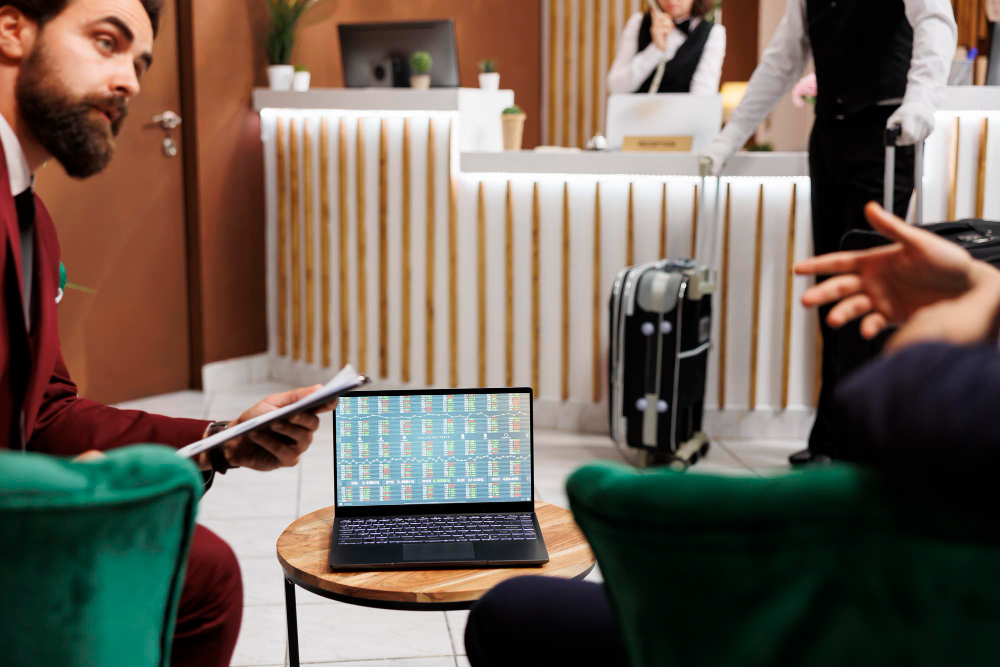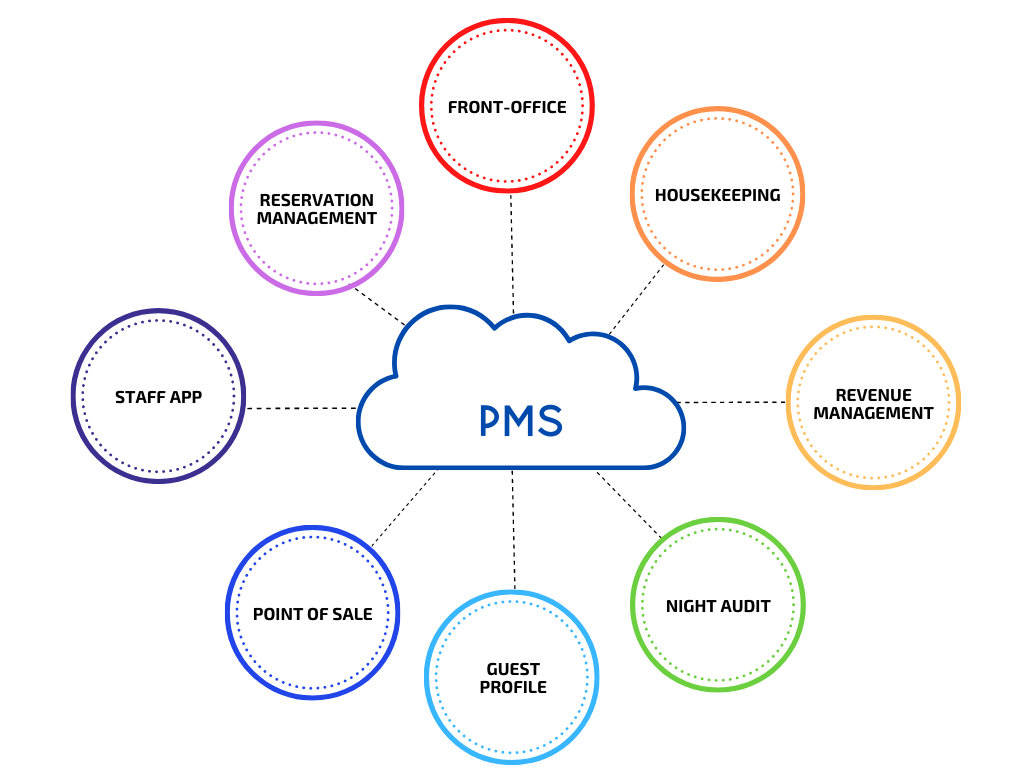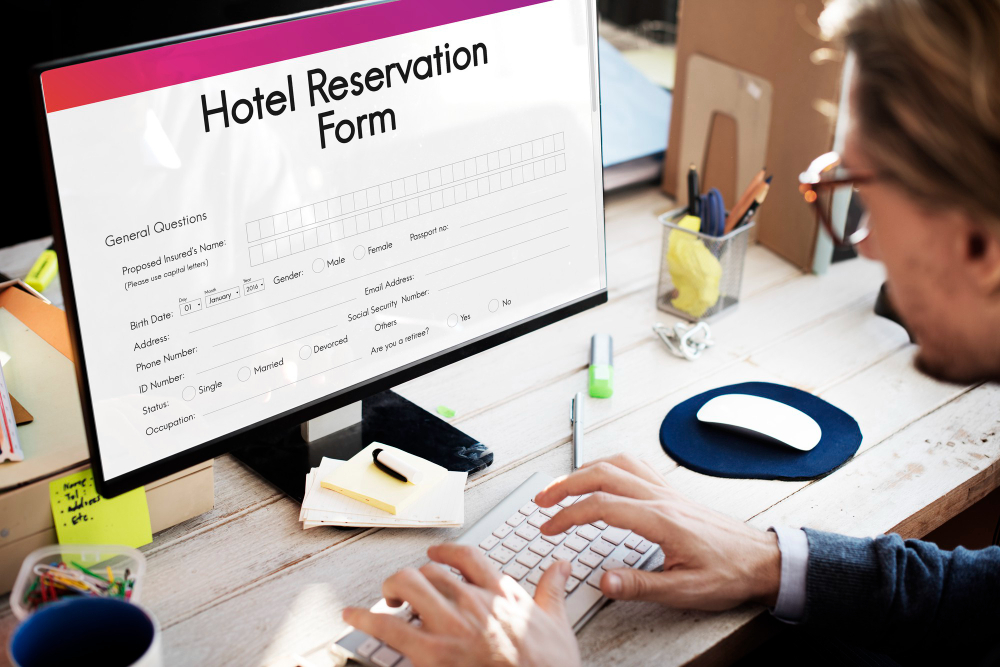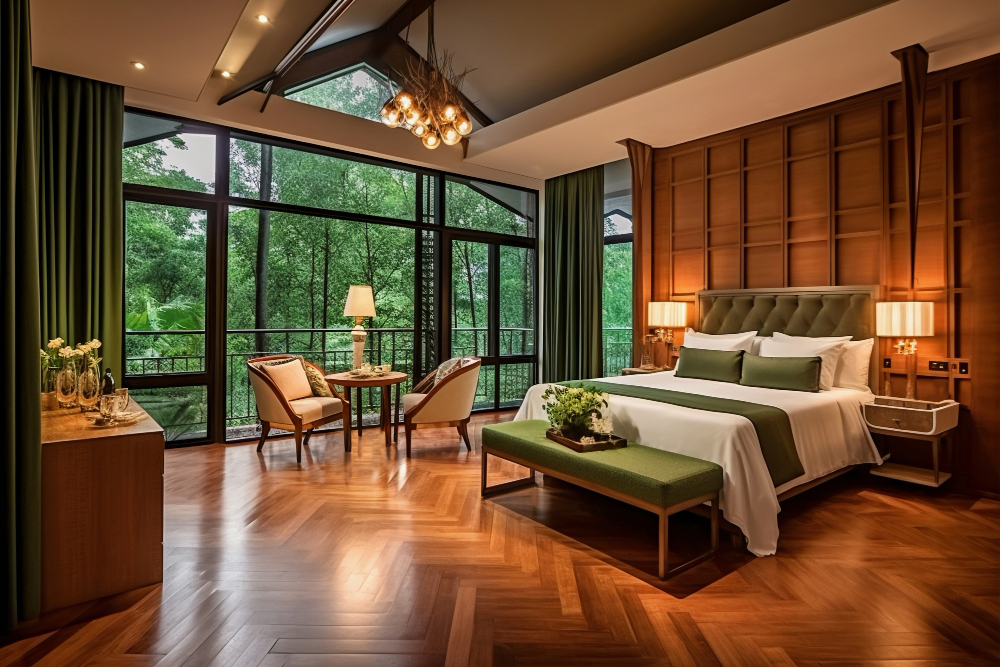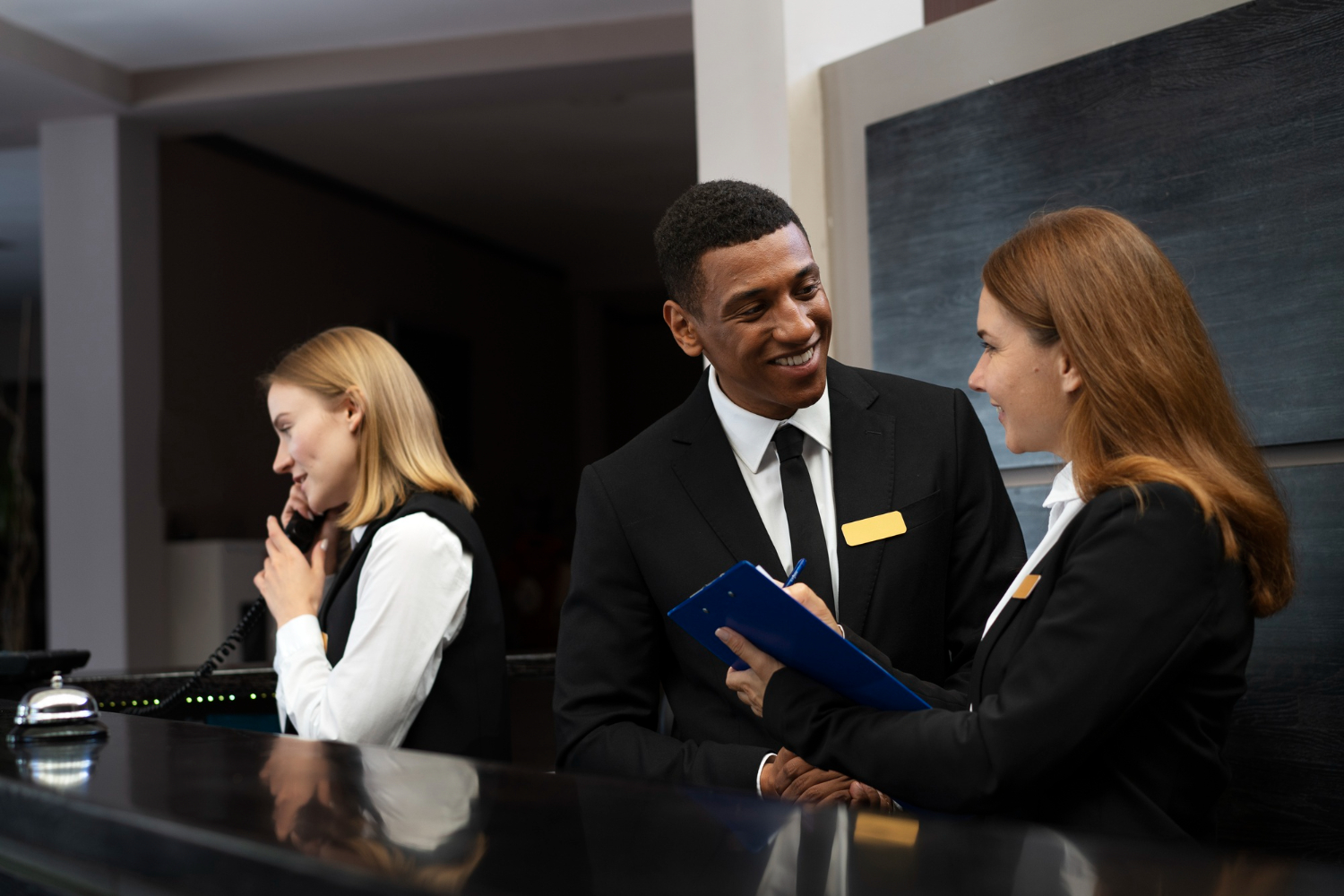In the cutthroat world of hospitality, hotels are pulling out all the stops to capture the attention of wanderlust-driven millennials and adventure-seeking Gen Zers. But forget about your grandma’s travel brochures—it’s 2024, and the game has changed.
Enter the realm of influencer marketing, where a single Instagram post can turn a hidden gem into the hottest destination overnight.
Micro-Influencers: The Secret Weapon You Never Knew You Needed
Think bigger is always better? Think again! While mega-influencers with millions of followers might seem like the golden ticket, savvy hotels are tapping into the power of micro-influencers. These niche content creators may have smaller followings, but their engagement rates are through the roof.
Here’s the kicker: micro-influencers often come with a much friendlier price tag. Imagine getting authentic, highly targeted content for the cost of a complimentary stay or a fraction of your marketing budget. It’s a win-win that’s helping hotels reach hyper-specific audiences and drive bookings like never before.
TikTok Takeovers: 15 Seconds to Booking Bliss
If you’re not on TikTok, you’re missing out on a goldmine of Gen Z travelers. Hotels like Marriott are going all-in with TikTok takeovers, handing over their accounts to influencers for whirlwind tours that capture the essence of their properties in bite-sized, addictive videos.
But here’s the real shocker: these aren’t just vanity metrics. TikTok’s “link in bio” feature is turning views into direct bookings faster than you can say “check-in time.” With over 60% of TikTok users between 16 and 34 years old, hotels tapping into this platform are seeing a surge in younger guests eager to recreate the experiences they’ve scrolled through.
Exclusive Access: The FOMO Factor That’s Filling Rooms
Remember when hotel lobbying was just for check-ins? Not anymore. Brands like Hilton are turning their properties into exclusive event spaces, hosting invite-only concerts and experiences for their most loyal guests and influential partners.
The twist? These events are live-streamed on platforms like Periscope, giving followers a tantalizing taste of what they’re missing. It’s FOMO (fear of missing out) on steroids, driving both bookings and loyalty program sign-ups through the roof. Who knew FOMO could be such a powerful booking motivator?
User-Generated Content: Turning Guests into Micro-Influencers
Why stop at professional influencers when every guest has the potential to be a brand ambassador? Hotels are incentivizing guests to share their experiences with branded hashtags and the promise of perks or future discounts.
The Ritz-Carlton took this to the next level by comping stays for social media users with engaged followings. The result? A flood of authentic, diverse content that resonates far more than any polished ad campaign ever could. It’s word-of-mouth marketing for the digital age, and it’s proving to be incredibly effective.
AI-Powered Influencer Matching: The Future Is Now
In 2024, AI isn’t just for chatbots. Hotels are leveraging sophisticated algorithms to identify the perfect influencer matches based on audience demographics, engagement rates, and brand alignment. This data-driven approach is eliminating guesswork and ensuring that every influencer collaboration delivers maximum ROI.
But here’s the real game-changer: AI is also helping hotels track the customer journey from influencer post to booking, providing unprecedented insights into campaign effectiveness. It’s not just about likes and shares anymore—it’s about cold, hard booking data.
5 Ways Influencer Marketing Can Boost Your Hotel’s Bottom Line (Infographic)
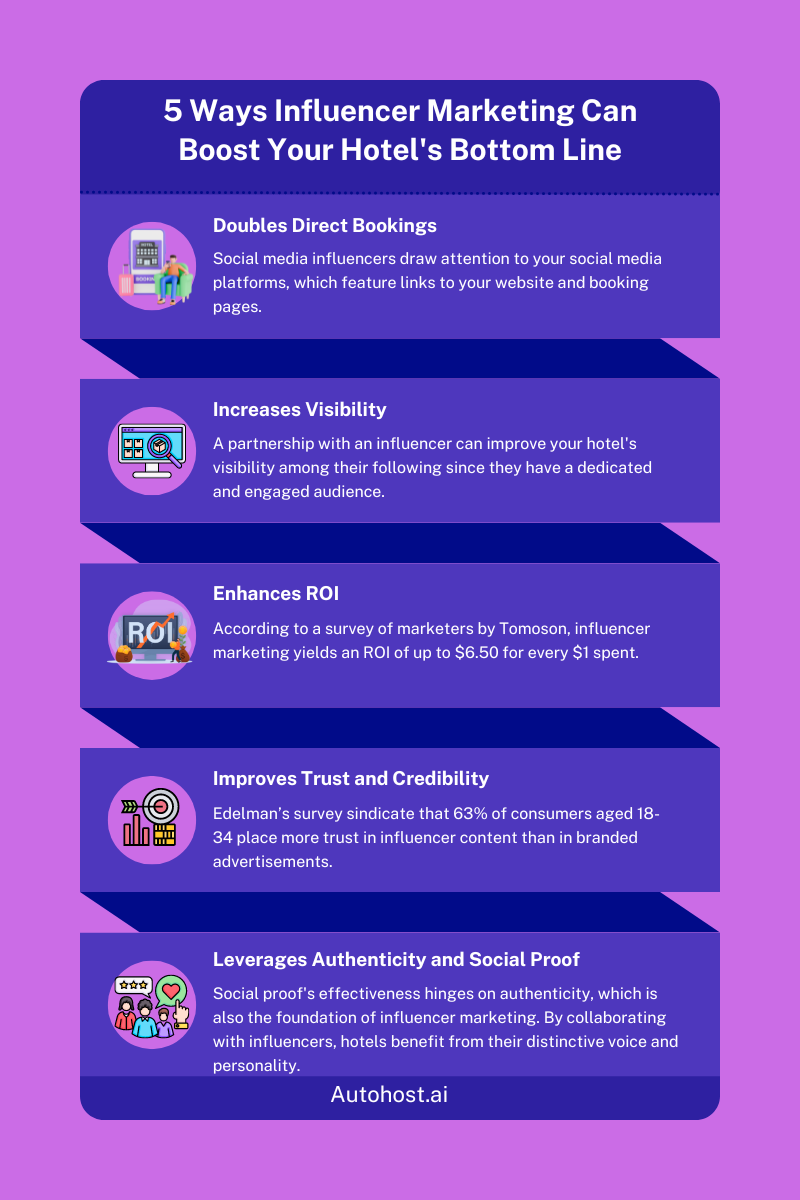
Explore AI-Powered Guest Screening and Verification Software
Our guest screening software provides access to a vast database of information, including rental history, social media profiles, and criminal records. Make informed decisions about who stays at your property, minimizing the risk of damage, disputes, or renting scams.
Seamlessly integrate our software into your existing reservation system for a streamlined and efficient process. Save time and enhance the guest experience by offering a quick and easy screening process.
The Bottom Line: Adapt or Get Left Behind
The influencer marketing landscape is evolving at breakneck speed, and hotels that fail to keep up risk becoming as outdated as a fax machine in WeWork. But for those willing to embrace these innovative strategies, the rewards are enormous. From skyrocketing brand awareness to a flood of direct bookings, influencer marketing is proving to be the secret sauce in the recipe for hotel success in 2024.
So, hoteliers, the question isn’t whether you should incorporate influencer marketing into your strategy—it’s how quickly can you get started?
Because in the time it took you to read this article, your competitors might have already launched their next viral campaign. Don’t let your property be left in the social media shadows. Embrace the influencer revolution and watch your bookings soar to new heights.
Remember, in the world of hospitality, staying ahead of the curve isn’t just an advantage—it’s a necessity. So go forth, collaborate, and let the influencer magic begin! Also, empower yourself with comprehensive guest insights through tenant screening software.


